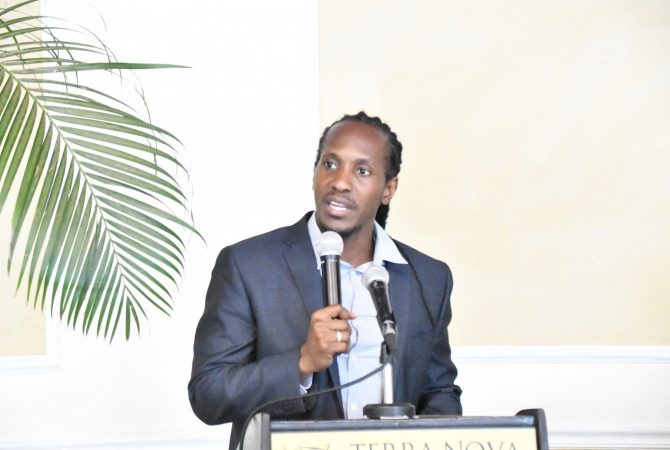JIS: State Minister for Education, Youth and Information, Hon. Alando Terrelonge, says the Ministry stands ready to support all efforts aimed at advancing the education of youngsters, ages 12 to 18, who are in custody at correctional institutions.
He said that such engagement is necessary in preventing the juvenile offenders from falling back into the cycle of crime and deviant behaviour, by ensuring that “when they leave the correctional facilities, they are able to better function as law-abiding citizens in productive areas”.
The State Minister was speaking at a Department of Correctional Services (DCS) appreciation luncheon for teachers and instructors attached to adult and juvenile penal institutions, held recently at the Terra Nova All-Suite Hotel in St. Andrew.
Mr. Terrelonge said recent studies indicate that globally, young people, ages 14 to 24, are responsible for a significant percentage of crimes.
He noted that these juvenile offenders, who are primarily boys, “would have also been exposed to violence and reproduced violent behaviour from an earlier age, usually at home or within their communities”.
Mr. Terrelonge noted that several of them display a willingness to change their ways, especially if they are so engaged.
As such, he is lauding the Ministries of National Security, and Justice and the DCS for implementing wide-ranging programmes to rehabilitate the young offenders through education and vocational training.
Mr. Terrelonge noted that the DCS has some 85 teachers and instructors assigned across the four juvenile and seven adult correctional institutions, whose work is bearing fruit.
“Based on the academic and skills training provided by yourselves and institutions such as HEART Trust/NTA, we are able, now, to produce certificates for inmates who have successfully completed their training,” he said.
The State Minister said he was pleased with the adult inmates and juveniles, particularly boys, who have pursued and are pursuing Caribbean Secondary Education Certificate (CSEC) studies, noting that a number of them have secured more than four subjects.
“Their (boys) academic achievements [have] motivated many others to get along that path to prosperity whilst in the confines of juvenile centres. I say a big ‘thank you’ to those young men, because they are now leading a positive [life] for the other young men to follow,” he noted further.
Mr. Terrelonge said the role of the instructors and teachers, in this regard, “cannot be overstated”.
“For not only are you instructing them in academics and vocational skills… you are also mentors and guides. You have become their mothers, their fathers (and) their counsellors. You have contributed to shaping a new life for them by equipping them with new skills to function in a positive way in society,” he said.
Some of these skills focus on conflict resolution, personal development, human rights and the rights of children, interpersonal relationships, and communication skills.
“The broad focus on vocational training is very important in helping these young men and older offenders to reintegrate into society upon their exit of correctional facilities. The rehabilitation of inmates and juveniles is important for all of us as we seek to build a better Jamaica that moves away from criminal activities,” Mr. Terrelonge said.
CAPTION: State Minister in the Ministry of Education, Youth and Information, Hon. Alando Terrelonge, delivering the keynote address at the Department of Correctional Services’ (DCS) appreciation luncheon for teachers and instructors serving in the penal system, at the Terra Nova Hotel in St. Andrew on Wednesday (June 5).


